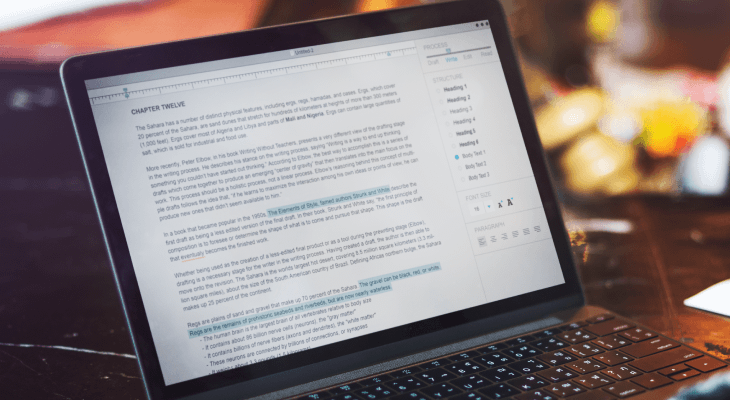6 Hacks Every Student Should Know To Write Assignments Faster and Better
Always finding yourself behind on assignments? Here are 6 tips to help you write faster and better and boost your productivity at the same time!
Published 09 Sep 2021

Are you constantly behind on your assignment because of your inability to write faster? Perhaps you struggle with getting the right words on paper. Whether you’re a college student chasing deadlines or an aspiring novelist trying to finish that first draft, completing your work without fizzling out is always a challenge.
But with the right tips and tricks, you can spend less time in your head having writer’s block and more time speeding through your papers. Here are 6 unconventional ways you can become a faster and better writer.
#1. Write when you’re sleepy

Have you heard of the phrase “write drunk, edit sober”? If you haven’t, you’d probably be surprised to know that many famous writers have produced great works with this mantra.
Though we don’t recommend doing your assignments drunk, we can suggest writing while sleepy! We’re not bluffing — research suggests that we’re more creative when we’re at our groggiest. The more tired you are, the less structured your thoughts can be and this can lead to randomly connected insights. You’ll gain a sudden burst of inspiration, recognition or comprehension.
If you’re a night owl, we suggest writing as soon as you get up. And if you’re an early bird, you might want to stay up late and burn the midnight oil.
#2. Chop up the writing process

Writing can sometimes feel like an insurmountable task, especially when you have a 20-page report to clock up.
It sounds overwhelming but remember — you don’t have to do it all at once! The best way is to chop up the writing process into different sections. Start with the basics — introduction, body (e.g literature review, methodology, results) and conclusion. Next, make a smaller framework for each section by listing ideas, research questions and evidence. Multitasking will only confuse you and cause you to mix up all the points, so remember to focus on one section until you find the right flow before moving on to the next.
Consider crafting a bulleted list as opposed to jotting paragraphs of draft work. Completing your assignment will be a breeze when you’re able to dissect points, make connections easily and spend less time reformatting everything if it’s organised.
PRO TIP
Don’t spend too much time on your first draft. You’re bound to make changes so editing should be the last thing on your mind. Focus on including your key points and come back to formatting it later.

#3. Set a timer

Do you tend to procrastinate your assignments until the very last minute? We’ve all had a time where we had every intention to start weeks before the deadline but ultimately ended up completing the bulk of our report in a manner of days.
While this may have gotten you writing lightning fast, it’s probably not the best for your heart. Instead of having a deadline to push you to stay focused, set a timer every time you write to maintain discipline and keep distractions at bay. This helps you to be more aware of the time you’re wasting every time you’re scrolling through social media or jumping from one task to the next. You can even use a timer to track break times to ensure you’re not away for too long.
Apply for university with EduAdvisor
Secure scholarships and more when you apply to any of our 100+ partner universities.
Start now#4. Work up a short writing ritual to get in the mood

Ever had to muster up the energy to do your assignments or prep for exams even when you’re not in the mood? Only one word to describe it — challenging.
Best believe that you’re not alone — even the greatest writers and leaders have struggled with procrastination too! But what they all have in common are rituals and mantras to get them in the right mood. According to research, having a ritual can help boost your motivation, reduce anxiety and increase confidence.
You can create your own writing ritual depending on your needs and preferences. Whether it’s doing a short meditation, having your first coffee of the day or simply writing blind, a ritual can calm the mind and kickstart your writing process. Just don’t make your ritual too complicated as it might take up too much time.
#5. Set an unreasonably low goal

Whether you want to complete that assignment earlier or blog more regularly, it’s no news that achieving writing goals can feel like a daunting, perhaps even an impossible task.
Thinking about it as one large sum might be the reason you’re so put off from doing it in the first place. In order to nurture a writing habit, start by setting your goal really low so that it’s easy to stick with it. Author Stephen Guise wrote his book “Mini-Habits” by setting a target of just 50 words a day. While it sounds incredibly low, he managed to write even when he was tired, busy or sick, ensuring that he made progress with his book no matter what.
If you’re bound to a deadline, you can always increase your target number of words. The point is to practise your writing muscles, achieve higher productivity and cultivate a habit. Not only will writing become easier and enjoyable but you’ll also sidestep procrastination.

#6. Avoid rabbit holes

Rabbit holes — they’re not only bound to happen on YouTube.
Sometimes it’s when you’re writing your paper and you’re missing key information that you swear you remember where it’s from. So, you scour through the assortment of open tabs to search for the information only to find yourself stuck, not being able to find the key point and having completely lost your train of thought.
Situations like this are bound to happen especially when you have plenty of tabs open at once. Instead of looking for supporting information every time you need to, what you can do is use colourful highlighters to emphasise paragraphs or phrases that need fixing. For instance, yellow highlight means to include citation, red suggests that the points could be irrelevant and blue requires back up evidence.
Another trick is to make a note next to phrases or paragraphs that are missing a piece of information. You can create your own abbreviation or insert editor’s jargon such as TK which is “to come” to emphasise that additional materials will be added. Continue writing your draft and only focus on adding the missing information later.






